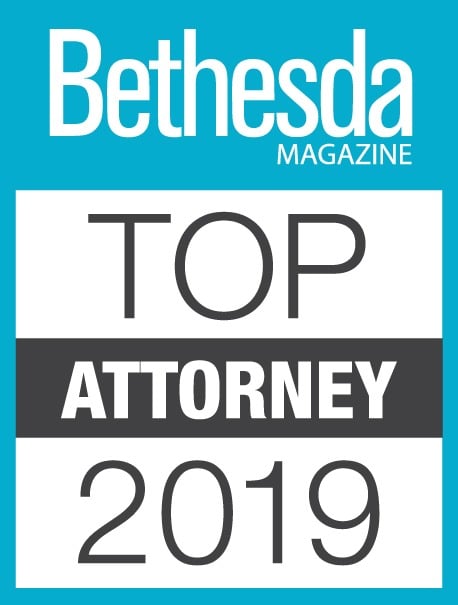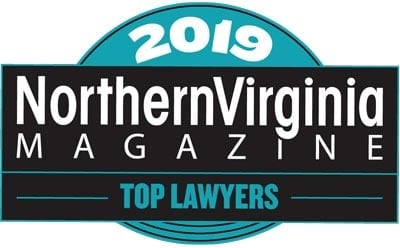A decision from the U.S. District Court for the Northern District of California in Wadler v. Bio-Rad Laboratories, Inc. clarifies that federal law permitting in-house lawyers to blow the whistle using confidential information trumps state rules of professional responsibility.
If you are seeking representation in a whistleblower retaliation claim, call us at 202-262-8959. We have extensive experience representing in-house counsel in whistleblower retaliation claims, including SOX retaliation actions and have established favorable precedent for in-house counsel litigating SOX retaliation claims.






Leading whistleblower lawyer Jason Zuckerman has secured settlements above $1 million in ten SOX whistleblower retaliation matters and established favorable precedent for SOX whistleblowers.
See our tips for in-house attorneys to get the maximum damages in whistleblower retaliation cases.
Takeaways for Attorney-Whistleblowers
- Where evidence for federal and state-law claims overlaps, federal common law governs the application of the attorney-client privilege.
- Where a retaliatory-discharge claim is brought under SOX and overlaps with a state-law claim, and the state’s ethical rules preclude the use of privileged or confidential information that SEC regulations would permit, the SEC’s regulations preempt the state’s rules.
- The public disclosure of privileged information, generally including such disclosure in government proceedings, expressly waives the attorney-client privilege as to that information. And the use of such information to put an attorney’s performance into issue impliedly waives the attorney-client privilege as to all communications relating to that information.
Background of Wadler SOX Case
Sanford Wadler was hired as general counsel of Bio-Rad in 1989, a position he held for almost 25 years. During that time, Mr. Wadler says, he investigated and internally reported potential violations of the Foreign Corrupt Practices Act (“FCPA”) in China, and brought his concerns to Bio-Rad’s audit committee. Mr. Wadler was fired in June 2013.
Mr. Wadler sued Bio-Rad in the U.S. District Court for the Northern District of California, claiming that Bio-Rad terminated him in retaliation for his investigation and disclosures, and so violated SOX, the Dodd-Frank Act, and California state law. Bio-Rad asserted that his termination was “due to poor work performance and behavior.”
The Securities and Exchange Commission (“SEC”) and the Department of Justice (“DOJ”) addressed Mr. Wadler’s claims in administrative proceedings regarding Bio-Rad’s potential FCPA violations. Mr. Wadler raised the same concerns in a SOX whistleblower complaint with the Department of Labor (“DOL”).
Bio-Rad’s outside counsel presented a slideshow to the SEC and DOJ, which addressed Mr. Wadler’s concerns in detail. The presentation included details about Mr. Wadler’s correspondence with the company’s audit committee, as well as the subsequent investigations into those concerns by outside counsel, the involvement of Bio-Rad’s in-house legal team, and specific legal advice that was provided. The presentation concluded that there was no evidence of either a violation or an attempted violation of the FCPA.
In his DOL complaint, Mr. Wadler detailed his reasons for believing that Bio-Rad had violated the FCPA and that his termination was in retaliation for his disclosures to the audit committee. In response, Bio-Rad described the external investigations into Mr. Wadler’s claims and argued that those investigations prove that his allegations are untrue. Bio-Rad’s response included declarations from high-level individuals at the company that addressed the external investigations into Mr. Wadler’s concerns of potential FCPA violations.
The declarations included details about “interactions and communications between Bio-Rad and Wadler and between Bio-Rad and outside counsel on a wide variety of issues.” Bio-Rad stated in its reply that it had not waived attorney-client privilege and that Mr. Wadler’s DOL complaint included certain privileged information. Asserting attorney-client privilege and work-product protection, the company refused to provide documentation related to Mr. Wadler’s memo to the audit committee or the investigations undertaken by outside counsel.
Bio-Rad filed a motion to dismiss Mr. Wadler’s complaint before the federal district court. In its motion, the company did not object to any of Mr. Wadler’s allegations on confidentiality or privilege grounds. Rather, Bio-Rad addressed Mr. Wadler’s substantive claims and publicly filed, as an exhibit, Mr. Wadler’s DOL complaint, despite previously claiming that the DOL complaint contained privileged materials and correspondence.
The court set September 23, 2016, as the deadline for filing dispositive motions. However, on October 7, 2016, Bio-Rad stated, for the first time, that it planned to file a motion arguing that Mr. Wadler could not prove his case without using the company’s privileged or confidential information.
Bio-Rad’s Motion to Exclude
Just before trial, Bio-Rad moved to exclude “all testimony that may be based on information [Mr. Wadler] learned in the course of his service as Bio-Rad’s general counsel.” This constituted “virtually all of the evidence and testimony [Mr. Wadler] might rely upon to prove his case.”
In its motion, Bio-Rad argued that “Wadler’s claims and Bio-Rad’s defenses are ‘inextricabl[y] intertwined with Bio-Rad’s privileged and confidential information,’ requiring that the Court make a document-by-document, witness-by-witness and question-by-question privilege determination” at trial.
The company argued, further, that California’s strict ethical and statutory rules regarding attorney conduct apply because “federal courts look to state ethical rules in areas of ‘traditional state regulation,’” and neither SOX nor Dodd-Frank “evidences a clear legislative intent to preempt California’s ethical and statutory rules regulating an attorney’s duty of confidentiality when an attorney brings claims for retaliatory discharge under those Acts.
Bio-Rad argued that to prove the elements of a retaliatory-discharge claim, Mr. Wadler would have to rely on documents protected by California’s ethical and statutory rules, including: “(i) confidential information Mr. Wadler learned in the course of his role as Bio-Rad’s general counsel; (ii) Mr. Wadler’s communications with Bio-Rad and with outside counsel; (iii) outside counsel’s communications with Bio-Rad and each other; and (iv) advice of inside and outside counsel reflected in Bio-Rad’s documents.”
Relying on General Dynamics v. Superior Court, 876 P.2d 487 (Cal. 1994), Bio-Rad argued that retaliatory-discharge claims brought by in-house counsel could be pursued only where they could be adjudicated without breaching client confidences. Given Mr. Wadler’s inevitable reliance on privileged or confidential information, Bio-Rad argued, Mr. Wadler had the burden to prove that a fair trial could be held without disclosing any of that information.
Mr. Wadler argued, in opposition, that Bio-Rad’s motion was dispositive and so untimely. Alternatively, he argued, federal privilege law, which allows attorneys to use privileged and confidential information in whistleblower actions, applied because the action involved overlapping federal and state claims. Mr. Wadler argued that SOX and Dodd-Frank preempt state ethical and statutory rules and pointed out that the SEC had previously argued that “use of client confidences in Section 806 retaliation proceedings is appropriate, and . . . that Section 205 preempts federal common law.”
Mr. Wadler argued that by disclosing information about his claims and the company’s defenses, both in administrative proceedings and in public documents filed in the instant action, Bio-Rad had waived any privilege or confidentiality that might have covered that information. First, Bio-Rad disclosed the information in the slideshow presented in the SEC and DOJ proceedings, which slideshow was also sent to the DOL and to Mr. Wadler. Second, in opposing Mr. Wadler’s complaint before the DOL, Bio-Rad produced detailed information about Mr. Wadler’s performance as general counsel. Finally, Bio-Rad publicly divulged all the client confidences in the instant action that its motion sought to protect.
Bio-Rad’s Motion Was Untimely
The court determined that Bio-Rad’s motion was dispositive because it did not identify specific evidence that should be precluded, but rather argued that the case could not move forward fairly. The motion was therefore untimely and so was denied. Nevertheless, the court went on to address the substance of Bio-Rad’s motion.
Federal Common Law Governs Privilege Analysis in a SOX Whistleblower Case
Citing Wilcox v. Arpaio, 753 F.3d 872 (9th Cir. 2014), the court determined that federal common law applied to Bio-Rad’s privilege claims because Mr. Wadler’s retaliation claims under federal and state law overlapped. It found that Bio-Rad’s reliance on General Dynamics was misguided, as that case dealt with retaliatory-discharge claims only under California state law, and Mr. Wadler had claims under both state and federal law. Citing Van Asdale v. International Game Technology, 577 F.3d 989 (9th Cir. 2009), the court determined that California’s state-law limitations are inapplicable under federal common law and, therefore, do not apply to Mr. Wadler’s federal SOX claim.
In-House Counsel Can Use Privileged Information to Prove a SOX Whistleblower Claim
The court surveyed the sparse federal appellate cases dealing with the ability of in-house counsel to use information covered by attorney-client privilege in bringing retaliation suits. Citing Van Asdale, the court determined that “there is some room for the use of privileged information, including the use of such evidence offensively, to establish whistleblower retaliation claims under Sarbanes-Oxley.” Therefore, it held, Mr. Wadler may use privileged communications and confidential information that is “reasonably necessary” for any of his claims or defenses.
Bio-Rad Waived Attorney-Client Privilege
The court reviewed the rules regarding waiver of privilege: where a party publicly discloses privileged information, which generally includes disclosure in government proceedings, it has expressly waived that privilege. And where a party puts its lawyer’s performance at issue in litigation, it has impliedly waived its attorney-client privilege. Applying those rules, the court found that by taking an “open and aggressive” tack in both the instant case and the preceding administrative proceedings, Bio-Rad had waived its attorney-client privilege regarding the information that its motion sought to protect.
First, Bio-Rad waived attorney-client privilege regarding the information it disclosed in the SEC and DOJ proceedings—namely, the slideshow presentation. Moreover, citing IGT v. Alliance Gaming Corp., No. 2:04-cv-1676-RCJ (RJJ), 2006 WL 8071393 (D. Nev. Sept. 28, 2006), and Federal Rule of Evidence 502, the court found that by using the slideshow “as a sword,” to attack Mr. Wadler’s performance as in-house counsel, Bio-Rad waived its privilege as to “any privileged communications about the specific matters disclosed.”
In the DOL proceeding, Bio-Rad introduced not only the slideshow but also alternative reasons for having fired Mr. Wadler, as well as corroborating declarations by upper-level managers. Those declarations included information that Bio-Rad claimed as privileged and used to attack Mr. Wadler’s performance as in-house counsel. Therefore, the court concluded, Bio-Rad waived the attorney-client privilege as to any “privileged communications between Wadler and Bio-Rad . . . [and] communications on the same subject matter.”
Finally, in the instant action, in arguing that it was justified in firing Mr. Wadler, Bio-Rad disclosed detailed information about Mr. Wadler’s communications with Bio-Rad managers and with the company’s audit committee, his legal advice to Bio-Rad, and the investigations conducted by outside counsel into his reports of potential FCPA violations. The court determined, therefore, that Bio-Rad had expressly waived its privilege as to all the information it disclosed and had impliedly waived its privilege as to all communications relevant to its asserted reasons for firing Mr. Wadler.
SOX Regulations Preempt California State Law
The SEC filed an amicus brief in support of Mr. Wadler’s ability to rely on evidence that is precluded under California’s ethical rules but permitted under SOX. Guided by the SEC’s brief, the court looked to the SEC’s Standards of Professional Conduct for Attorneys (“Part 205”), enacted under SOX.
Part 205 requires that attorneys “report material violations ‘up the ladder’ by making a Part 205 Report” and continue to do so until they receive an “appropriate response.” 17 C.F.R. § 205.3(b). Moreover, Part 205 allows attorneys to use “[a]ny report under this section (or the contemporaneous record thereof) or any response thereto (or the contemporaneous record thereof) . . . in connection with any investigation, proceeding, or litigation in which the attorney’s compliance with this part is in issue.” Id. § 205.3(d)(1) (emphasis added by the court). In the comments to the rule, the SEC stated that “it is important to make clear in the rule that attorneys can use any records they may have prepared in complying with the rule to protect themselves.”
Part 205 provides, further, that “[w]here the standards of a state or other United States jurisdiction where an attorney is admitted or practices conflict with this part, this part shall govern.” Id. § 205.1. In its accompanying comments, the SEC stated that it “reaffirms that its rules shall prevail over any conflicting or inconsistent laws of a state or other United States jurisdiction in which an attorney is admitted or practices.”
The court found that Part 205 demonstrates an “unambiguous intent to preempt state ethical rules that prevent attorneys from disclosing privileged information necessary to comply with Sarbanes-Oxley.” Therefore, California’s ethical rules are preempted insofar as they limit the disclosure of privileged or confidential information more than SOX does.
Sarbanes-Oxley (SOX) Whistleblower Protection for In-House Attorneys
Leading SOX whistleblower law firm Zuckerman Law has released a guide to the SOX whistleblower protection law: Sarbanes-Oxley Whistleblower Protection: Robust Protection for Corporate Whistleblowers. The guide summarizes SOX whistleblower protections and offers concrete tips for corporate whistleblowers based on lessons learned during years of litigating SOX whistleblower cases.
The goal of the guide is to arm corporate whistleblowers with the knowledge to effectively combat whistleblower retaliation, avoid the pitfalls that can weaken a SOX whistleblower case, and formulate an effective strategy to obtain the maximum recovery.
Whistleblower Protections for In-house Corporate Attorneys
Damages and Remedies in SOX Whistleblower Retaliation Cases
Protections for Attorney Whistleblowers Reporting Corporate Fraud
Experienced Whistleblower Lawyers Representing In-House Attorneys
The SOX whistleblower lawyers at Zuckerman Law have substantial experience litigating Sarbanes Oxley whistleblower retaliation claims and have achieved substantial recoveries for in-house counsel, officers, executives, accountants, auditors, and other senior professionals. Click here to read client testimonials about the firm’s work in SOX whistleblower matters and other employment-related litigation.
To schedule a free preliminary consultation, click here or call us at 202-262-8959.




False Claims Act Whistleblower Protection for In-House Counsel
Tax Fraud Whistleblower Protection for In-House Counsel
Leading SOX whistleblower law firm Zuckerman Law has written extensively about whistleblower protections and is quoted frequently in the media on this topic. A sample of those blog posts and articles appears below:
- Sarbanes Oxley Whistleblower Win Shows Strong Need For Whistleblower Protections
- DOL Adopts Strengthened Sarbanes-Oxley Whistleblower Regulations
- Jury Awards Former Bio-Rad Counsel $11M in Sarbanes-Oxley Whistleblower Case
- Sarbanes-Oxley Whistleblower Decision Clarifies Broad Scope of Protected Whistleblowing
- Decision Denying Motion for Summary Judgment Broadly Construes Sarbanes-Oxley Protected Whistleblowing
- Sarbanes-Oxley Protects Disclosures About Inadequate Information Security Controls
- Jury Awards Six Million Dollars to Whistleblower in Sarbanes-Oxley Case
- Sarbanes-Oxley Authorizes Damages for Reputational Harm
- OSHA Orders Bank to Reinstate Sarbanes-Oxley Whistleblower
- Sarbanes-Oxley Whistleblower Prevails on Appeal
- Sarbanes-Oxley Whistleblower Obtains $2.7M in Front Pay
- SOX Whistleblower Decision Adopts Favorable Pleading Standard for Whistleblowers
- OSHA Orders Wells Fargo to Pay $5.4M to Whistleblower
- District Court Rejects Materiality Requirement for Sarbanes-Oxley Whistleblower Actions
- SARBANES-OXLEY WHISTLEBLOWER CASE CLARIFIES THE BURDEN FOR PLEADING KNOWLEDGE OF PROTECTED WHISTLEBLOWING
- Whistleblowing Fraud Investigator Defeats Motion to Dismiss Sarbanes-Oxley Whistleblower Case
- Third Circuit Decision Highlights Key Procedural Distinctions Between Sarbanes-Oxley and Dodd-Frank Whistleblower Protection Provisions
- Federal Courts Are Adopting the Administrative Review Board’s Broad Interpretation of Sarbanes-Oxley Protected Conduct
- Are cybersecurity whistleblowers protected against retaliation?
- Court Rules that Whistleblowers Can Use Confidential Company Documents to Expose Fraud
- Fifth Circuit Holds that “Outing” a Whistleblower is an Adverse Action Under SOX
- Court Rules for In-House Counsel Whistleblower
- Leading SEC Whistleblower Law Firm Featured in Article About Growing Wave of Whistleblower Lawsuits
- Pro Se Sarbanes Oxley Whistleblower Prevails in Jury Trial
- Whistleblower Lawyer Interviewed About Dodd-Frank Whistleblower Protection Provision
- A Wells Fargo whistleblower warned about fake accounts in 2011 — nobody from the government ever spoke with her
- Whistleblower Lawyer Dallas Hammer Quoted About Cybersecurity Whistleblowing
- Tax Notes Quotes Whistleblower Lawyer Zuckerman About SOX Whistleblower Case
- Article Reports on Petition to Strengthen Whistleblower Rights
- Whistleblower Lawyer Zuckerman Quoted About OSHA Whistleblower Investigations
- Whistleblower Lawyer Quoted About Sarbanes-Oxley Whistleblower Development
- Whistleblower Lawyer Jason Zuckerman Quoted About Sarbanes-Oxley Whistleblower Protection
- Forbes Quotes Whistleblower Attorney Jason Zuckerman About Self-Help Discovery in Whistleblower Litigation
- Federal Courts Are Adopting the Administrative Review Board’s Broad Interpretation of Sarbanes-Oxley Protected Conduct
- DOL Clarifies Burden-Shifting Framework For Whistleblowers, Law 360 (October 2016)
- The Evolution Of SOX: A Powerful Remedy For Retaliation, Law 360 (May 2016)
- Whistleblower Protections and Incentives for Auditors and Accountants, Accounting Today (May 2016)
- 2016 Annual Update on the Whistleblower Provisions of SOX, American Bar Association Section of Labor and Employment Law Subcommittee on the Sarbanes-Oxley Act of 2002 (February 2016)
- Sixth Circuit Hands A Landmark Victory To SOX Whistleblowers, Law 360 (June 2015)
- A Year For Whistleblower Rewards And Protections, Law 360 (December 2014)
- Congress Strengthens Whistleblower Protections for Federal Employees, ABA Section of Labor and Employment Law (December 2012)
- Whistleblowers: What Protections And Forms of Relief Are Available For Foreign-Based Employees, ABA Section Of International Law Spring 2011 Meeting (March 2011)
- Law 360 Quotes Whistleblower Attorney Jason Zuckerman About Fifth Circuit Sarbanes-Oxley Whistleblower Decision
- Law 360 Quotes Whistleblower Lawyer Jason Zuckerman on Seminal Sarbanes-Oxley Whistleblower Decision
- Whistleblower Attorney Zuckerman Quoted in Article About Sarbanes-Oxley Whistleblower Protection Decisions
- Law 360 Quotes Whistleblower Lawyer Jason Zuckerman on Seminal Sarbanes-Oxley Whistleblower Decision
- Law360 Quotes Whistleblower Lawyer Jason Zuckerman About Sarbanes-Oxley Causation Standard
- Whistleblower Attorney Jason Zuckerman Quoted in Law360 Article About Whistleblower Self-Help Discovery
- Whistleblower Advocate Jason Zuckerman Quoted in Article About In-House Attorney Whistleblower Lawsuits
- Whistleblower Lawyer Hammer Quoted by Bloomberg About Rebound in Sarbanes Oxley Whistleblower Retaliation Claims
- Whistleblower Lawyer Quoted About Sarbanes-Oxley Whistleblower Development
- Whistleblower Lawyer Interviewed About the Rise of Cybersecurity Whistleblowing



